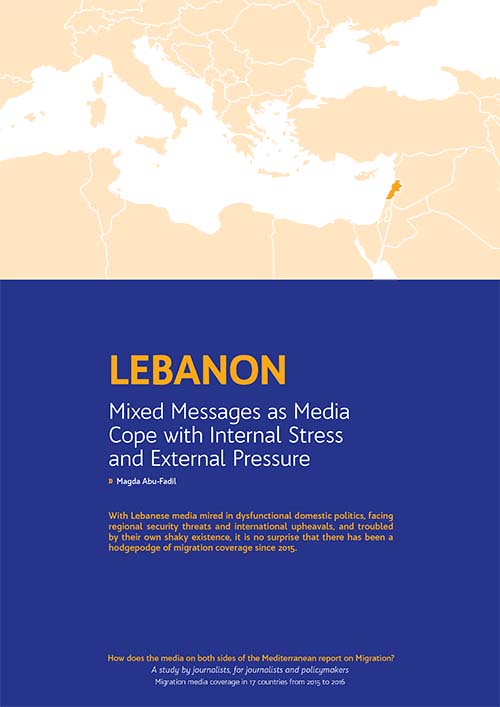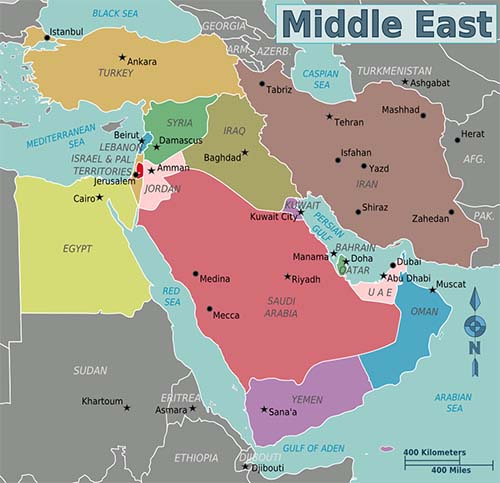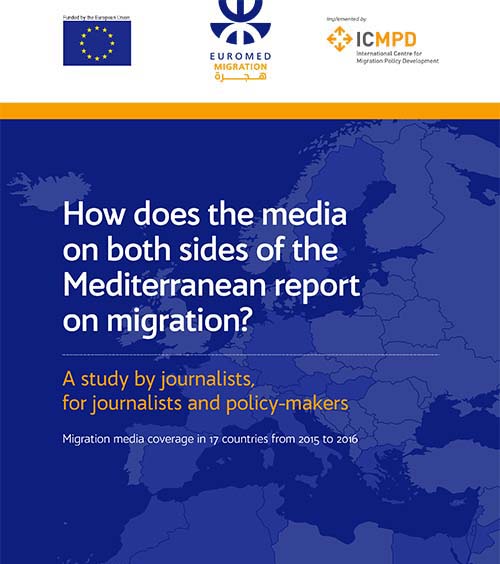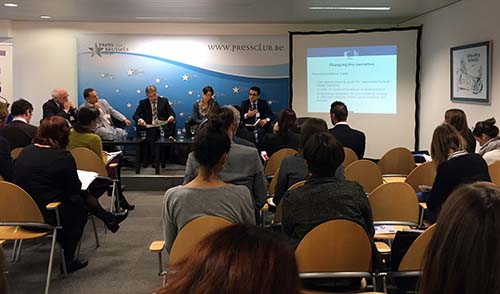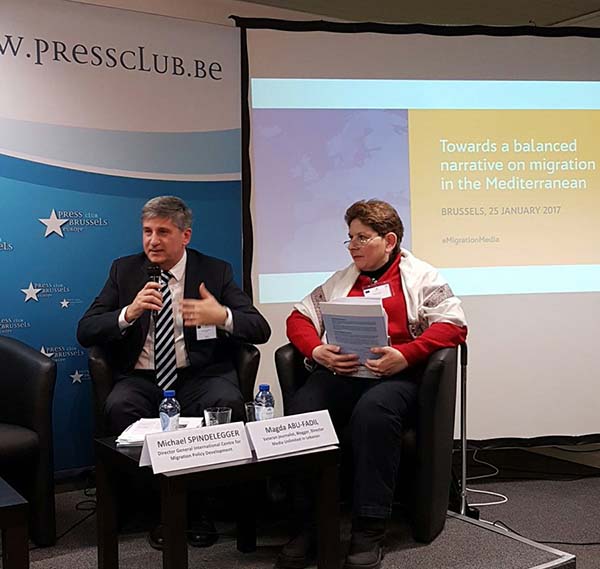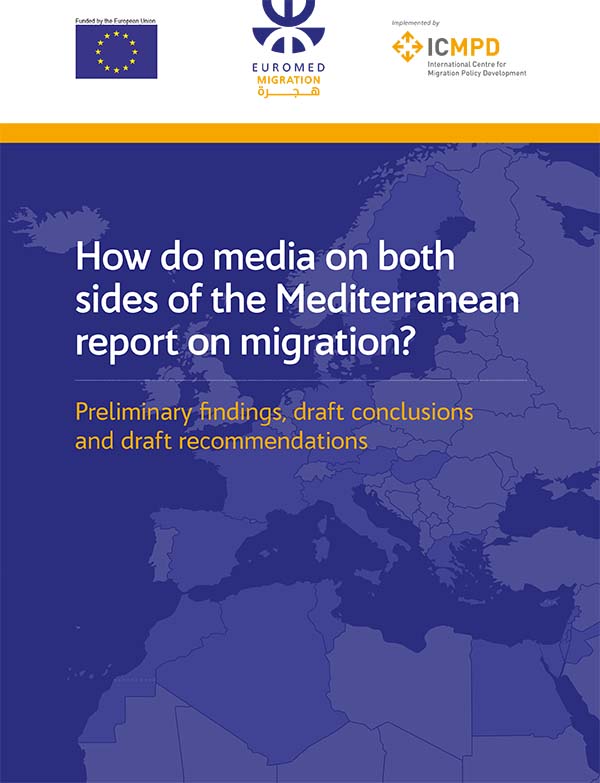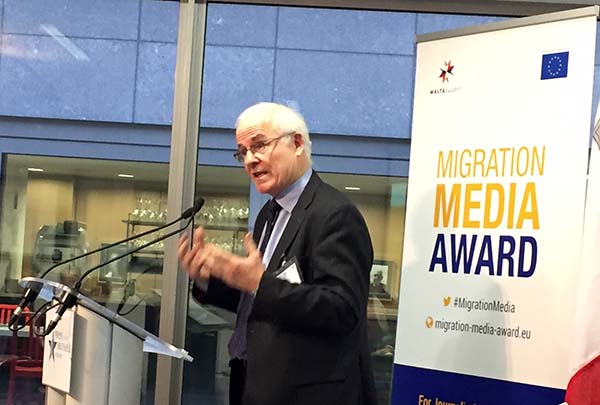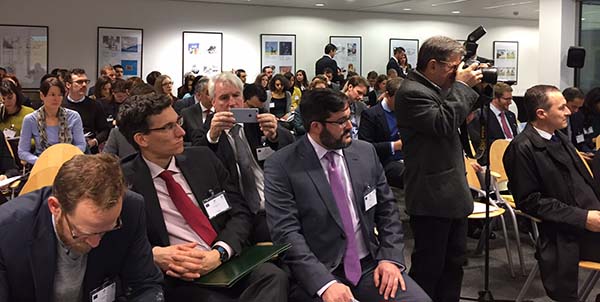Migration, refugees and human trafficking won’t disappear as topics any time soon so media had better change their narrative and learn to cover them more professionally and less sensationally.
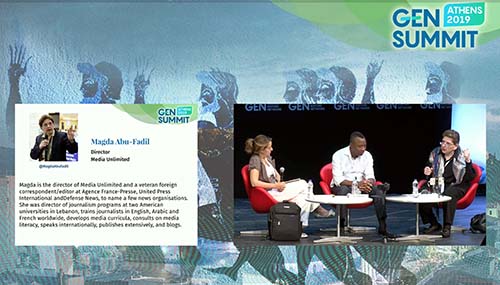
GEN Summit Athens
That was the thrust of a panel Media Unlimited director Magda Abu-Fadil moderated at the June 2019 Global Editors Network (GEN) summit in Athens during which she tackled the thorny issues of what people should be called when they move from one country to another for whatever reason, how the story should be framed, and what types of ethical guidelines to follow.
In an introductory presentation, she showed a brief video produced by the UNHCR about the number of Syrian refugees in neighboring countries since the conflict broke out in Syria to highlight facts and figures with which governments may disagree, and to underline how this problem can mislead and confuse journalists.

How can we change the narrative on migration media coverage?
Confusion also arises about the terminology used by various international and local organizations. Who’s a migrant? Who’s a refugee? Who’s a displaced person? Who’s an expat or economic migrant?
“It has become a hot topic in Europe and America where far-right politics is driving the conversation around migration and it’s also somehow forcing coverage to follow along those lines,” said Omoyele Sowore, founder and editor in chief of Sahara Reporters (SR), adding that some of those discussions are driven by racist sentiments.
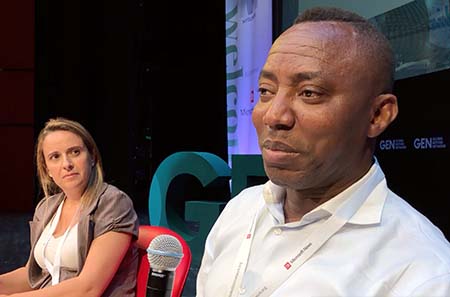
Blanca Tapia and Omoyele Sowore
An SR team set up the innovative prototype “Africana” to help newsrooms approach the topic of migration in new and innovative ways and debunk misinformation on how it’s reported in Africa, and beyond.
For Blanca Tapia, the focus was migrants’ rights in European Union (EU) countries and how her niche organization provides media with the needed information to humanize the story and respect for those who’ve been displaced, had to leave their homelands, and seek asylum.
“People talk about economic migrant; I could be an economic migrant, I come from Spain, I took a job, I ended up in Vienna, but I belong to a fantastic category called expats,” she said about the classification and stereotyping of people.
Tapia, a former broadcast journalist, is the program manager at the European Union Agency for Fundamental Rights (FRA), one of the EU’s decentralized agencies set up to provide expert advice to the EU’s institutions and member states on the people living therein.

Screen shot of e-Media Toolkit (courtesy fraEuropa)
She introduced FRA’s new e-learning platform produced by journalists for journalists to mark World Refugee Day on June 20.
An online e-Media Toolkit developed in cooperation with the European Broadcasting Union and the Ethical Journalism Network with the support of the European Federation of Journalists provides first-hand assistance to media professionals with learning resources, training courses, and opportunities to share and interact.
Abu-Fadil said she was commissioned to write a guide by the Thompson Foundation’s Open Media Hub (OMH) and the International Centre for Migration Policy Development (ICMPD) in English that was translated to Arabic and French.
Then Open Media Hub asked her to turn it into workshops and she trained journalists in Tunis on how to cover the topic.
OMH and ICMPD, with European Union funding, also launched the Migration Media Award, of which she’s a jury member.
OMH also asked Abu-Fadil to create an online course based on the handbook. It’s self-paced, free, and available in four languages: English, Arabic, French, and Russian.

Online “Reporting on Migration” course
You can view the whole GEN discussion on YouTube.






